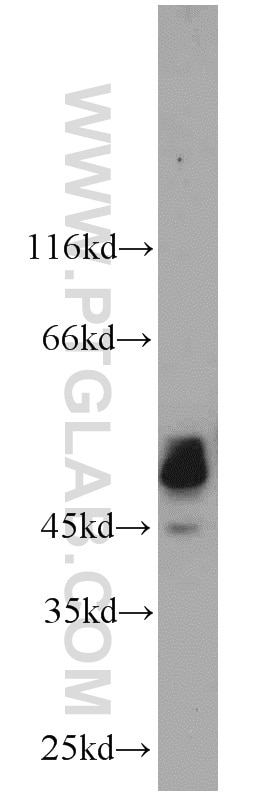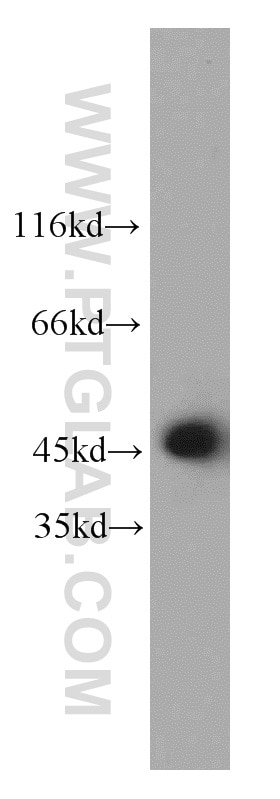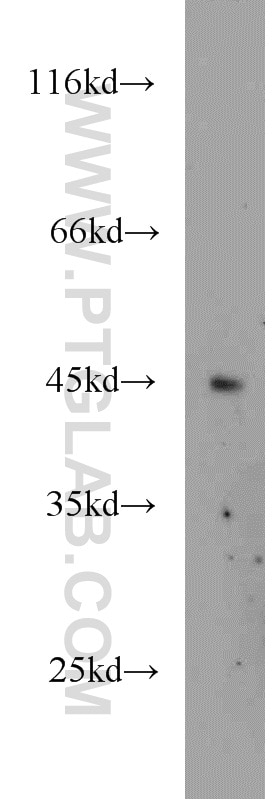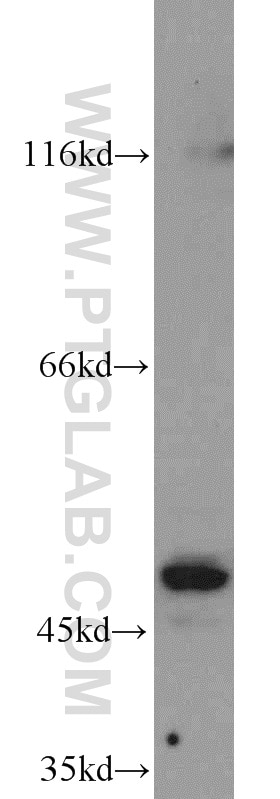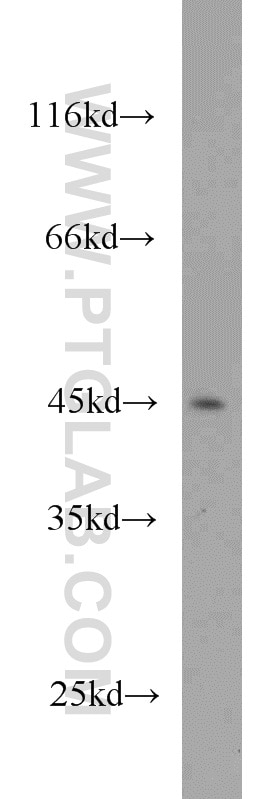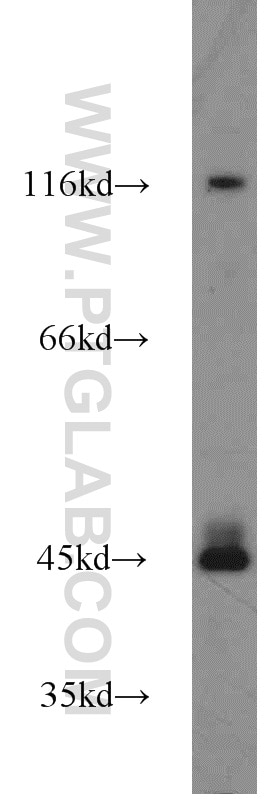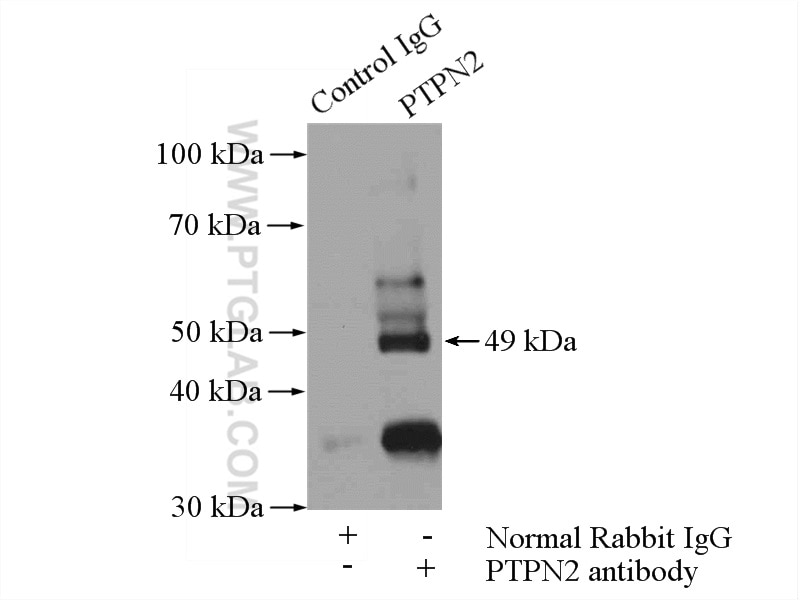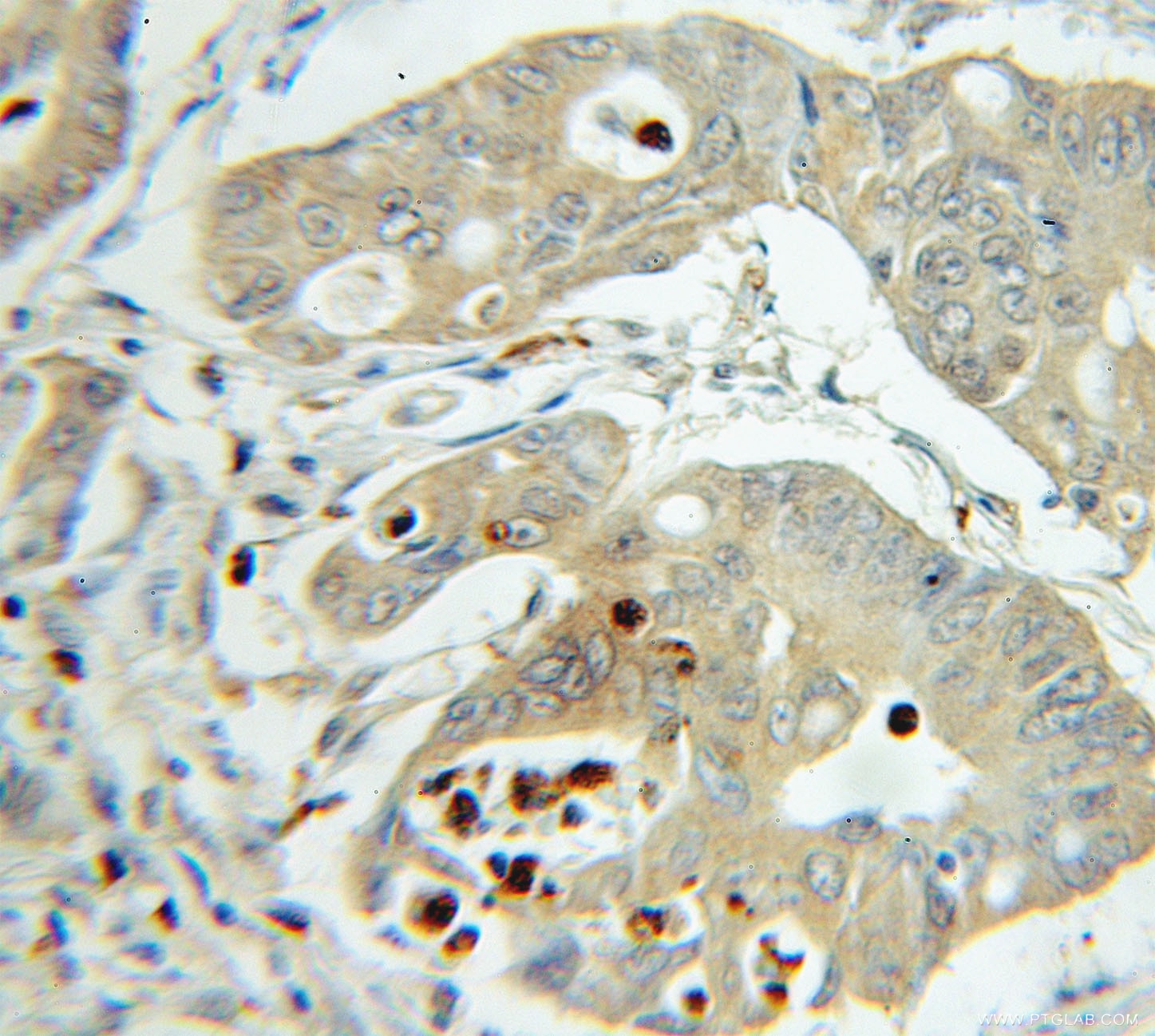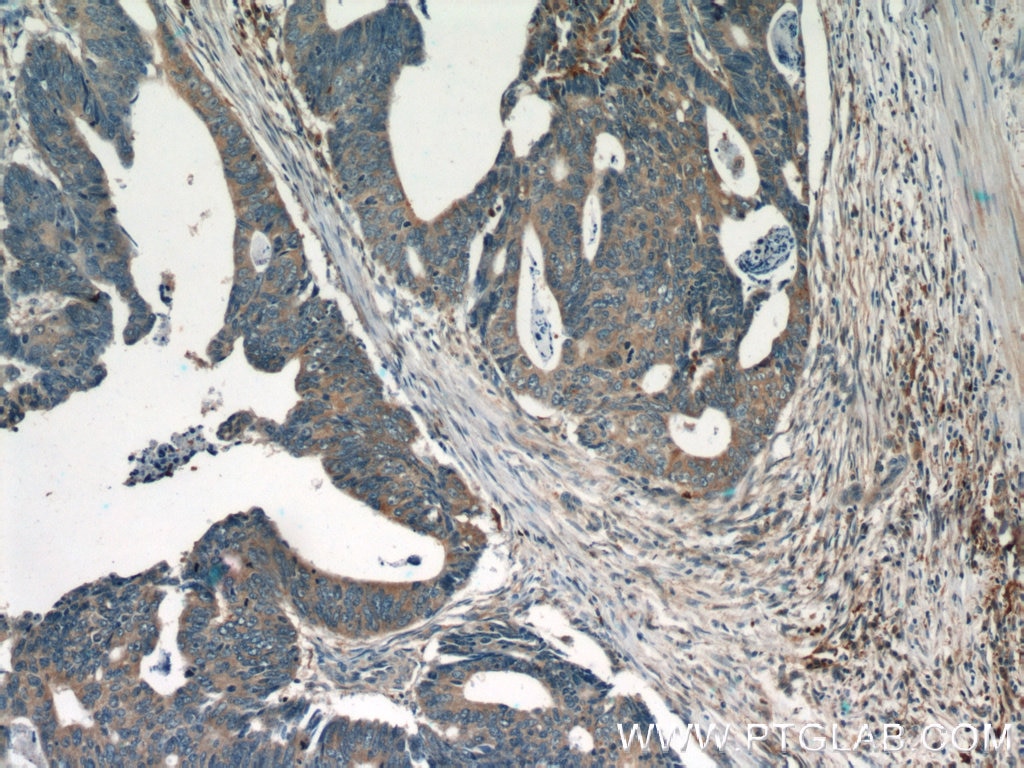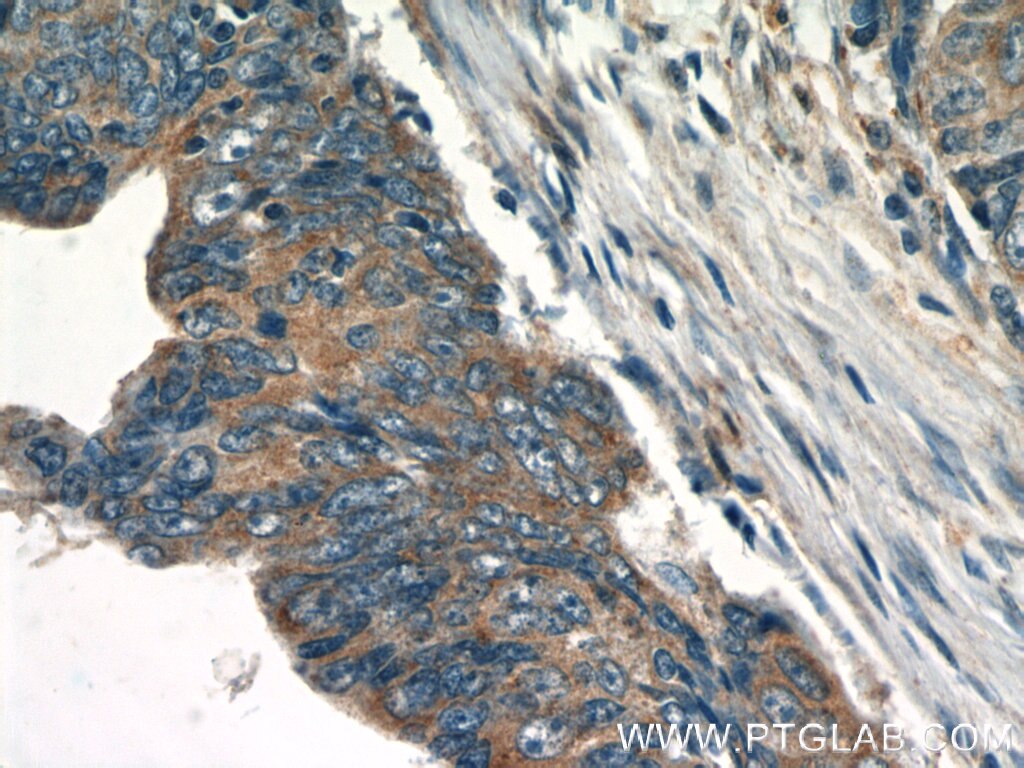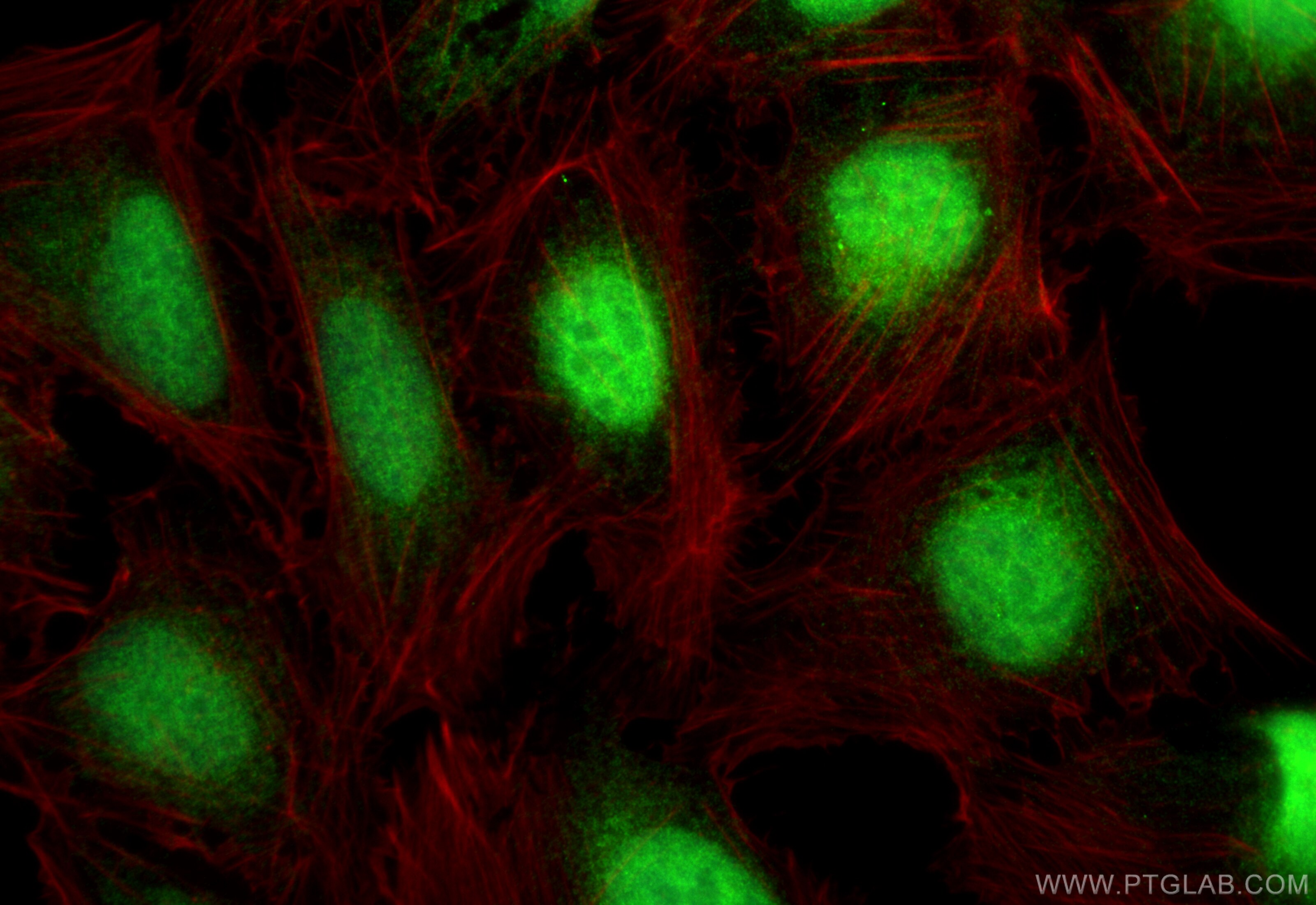Validation Data Gallery
Tested Applications
| Positive WB detected in | mouse thymus tissue, HeLa cells, HL-60 cells, NIH/3T3 cells |
| Positive IP detected in | HL-60 cells |
| Positive IHC detected in | human colon cancer tissue Note: suggested antigen retrieval with TE buffer pH 9.0; (*) Alternatively, antigen retrieval may be performed with citrate buffer pH 6.0 |
| Positive IF/ICC detected in | U2OS cells |
Recommended dilution
| Application | Dilution |
|---|---|
| Western Blot (WB) | WB : 1:500-1:2000 |
| Immunoprecipitation (IP) | IP : 0.5-4.0 ug for 1.0-3.0 mg of total protein lysate |
| Immunohistochemistry (IHC) | IHC : 1:20-1:200 |
| Immunofluorescence (IF)/ICC | IF/ICC : 1:200-1:800 |
| It is recommended that this reagent should be titrated in each testing system to obtain optimal results. | |
| Sample-dependent, Check data in validation data gallery. | |
Published Applications
| KD/KO | See 5 publications below |
| WB | See 10 publications below |
| IHC | See 10 publications below |
| IF | See 1 publications below |
| IP | See 2 publications below |
Product Information
11214-1-AP targets PTPN2 in WB, IHC, IF/ICC, IP, ELISA applications and shows reactivity with human, mouse samples.
| Tested Reactivity | human, mouse |
| Cited Reactivity | human, mouse |
| Host / Isotype | Rabbit / IgG |
| Class | Polyclonal |
| Type | Antibody |
| Immunogen |
CatNo: Ag1709 Product name: Recombinant human PTPN2 protein Source: e coli.-derived, PGEX-4T Tag: GST Domain: 1-346 aa of BC016727 Sequence: MPTTIEREFEELDTQRRWQPLYLEIRNESHDYPHRVAKFPENRNRNRYRDVSPYDHSRVKLQNAENDYINASLVDIEEAQRSYILTQGPLPNTCCHFWLMVWQQKTKAVVMLNRIVEKESVKCAQYWPTDDQEMLFKETGFSVKLLSEDVKSYYTVHLLQLENINSGETRTISHFHYTTWPDFGVPESPASFLNFLFKVRESGSLNPDHGPAVIHCSAGIGRSGTFSLVDTCLVLMEKGDDINIKQVLLNMRKYRMGLIQTPDQLRFSYMAIIEGAKCIKGDSSIQKRWKELSKEDLSPAFDHSPNKIMTEKYNGNRIGLEEEKLTGDRCTGLSSKMQDTMEENSE 相同性解析による交差性が予測される生物種 |
| Full Name | protein tyrosine phosphatase, non-receptor type 2 |
| Calculated molecular weight | 49 kDa |
| Observed molecular weight | 45-50 kDa |
| GenBank accession number | BC016727 |
| Gene Symbol | PTPN2 |
| Gene ID (NCBI) | 5771 |
| RRID | AB_2173235 |
| Conjugate | Unconjugated |
| Form | |
| Form | Liquid |
| Purification Method | Antigen affinity purification |
| UNIPROT ID | P17706 |
| Storage Buffer | PBS with 0.02% sodium azide and 50% glycerol{{ptg:BufferTemp}}7.3 |
| Storage Conditions | Store at -20°C. Stable for one year after shipment. Aliquoting is unnecessary for -20oC storage. |
Background Information
PTPN2(Tyrosine-protein phosphatase non-receptor type 2) is also named as PTPT and belongs to the protein-tyrosine phosphatase family. It may modulate beta-cell apoptosis and/or local release of inflammatory mediators in the course of a viral infection by acting, at least in part, at the pancreatic beta-cell level(PMID: 19825843). This protein has some isoforms produced by alternative splicing with the molecular mass of 40-50 kDa.
Protocols
| Product Specific Protocols | |
|---|---|
| IF protocol for PTPN2 antibody 11214-1-AP | Download protocol |
| IHC protocol for PTPN2 antibody 11214-1-AP | Download protocol |
| IP protocol for PTPN2 antibody 11214-1-AP | Download protocol |
| WB protocol for PTPN2 antibody 11214-1-AP | Download protocol |
| Standard Protocols | |
|---|---|
| Click here to view our Standard Protocols |
Publications
| Species | Application | Title |
|---|---|---|
Biochim Biophys Acta Mol Basis Dis PTPN2 dephosphorylates STAT3 to ameliorate anesthesia-induced cognitive decline in aged rats by altering the microglial phenotype and inhibiting inflammation | ||
Int Immunopharmacol Hypoxia disrupts the nasal epithelial barrier by inhibiting PTPN2 in chronic rhinosinusitis with nasal polyps
| ||
Int Immunopharmacol Oral squamous cell carcinoma-derived EVs promote tumor progression by regulating inflammatory cytokines and the IL-17A-induced signaling pathway | ||
Cell Death Dis Cryptotanshinone inhibits human glioma cell proliferation in vitro and in vivo through SHP-2-dependent inhibition of STAT3 activation.
| ||
Sci Rep Targeted disruption of TC-PTP in the proliferative compartment augments STAT3 and AKT signaling and skin tumor development. |

